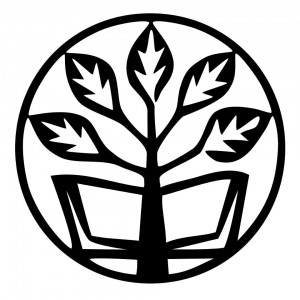Invitation
We invite scholars, students, artists and practitioners to take part in investigating the many forms by which we experience the presences of political reality, and in approaching these forms from social, artistic, aesthetic and cultural analysis. We wish to articulate the ideological forces underlying today’s political thinking. We also want to inaugurate a debate on the role of cultural approaches in political analysis. We wish to break new paths in connecting the cultural humanities and the political sciences and invite participants to bravely explore new ways of studying the issue. We believe that experimentation is crucial for rethinking the political.

Theme of the symposium
In this summer session we explore historical examples from the 20th century of how the political has appeared, both intentionally and unintentionally. Examples can be movements with explicit programs for forming the modern, or future, world such as Russian Constructivism, Modernist architectural program and sub- or countercultural movements. Examples can also be cultural forms that are unintentionally, or at least without an explicit awareness, appearances of political ideologies, such as urban planning, consumer culture and fashion. Such historical examples can take many forms, like the transformation of personal appearances in dress and hair-style in the '60s and '70s displayed in the period’s fashion and anti-fashion, including specific styles like punk and fetishized expressions of the military forms of guerrilla soldiers and freedom fighters. Or, for instance, the cold war had many forms of political expressions in both Soviet ideas of political manifestations in ideological decorations as well as the organisation of build environments. The examples are numerous in art, literature, design and fashion as well as in organisation of work, culture, communication and entertainment, and include explicit political actions in fights for rights (workers, women, and minorities), movements of liberation across the world, and of political struggles, as well as the implicit forms of oppression preserved through cultural exercised routines. We encourage the participants to share analysis and criticism of concrete examples and discussions hereof or to share texts throwing light on the topic and offering platforms for critical discourses.
Format(s) of the presentation
We are encouraging traditional and non-traditional presentations, including:
- Presentation of work: We strongly encourage giving a free oral presentation rather than reading a paper. We wish to facilitate open debates for sharing and ask for presentations creating platforms for debate. A presentation cannot exceed 20 min.
- Presentation of a text: You can offer to present a text, which can be either your own writing or the examination and presentation of another’s published text. The text will be distributed to all participants beforehand and should not exceed 25 pages. The presentation should have the form of a short introduction of the argumentation, facilitating participants to engage in discussion. The presentation of the text cannot exceed 15 min followed by discussion
- Performance, object or alternative forms: You can present ideas, examples or reflections through other formats including inviting the participants to engage in experiments, situations, or individual and group activities.
Please indicate the optimal time for this form of presentation. Please submit via email to the coordinators:
- A written proposal (max. 350 words) with a title and descriptive subtitle. This text should include your presentation proposal, its format, its duration, and technology and/or facilities you may need.
- A short bio (max. 100 words)
If you would like to attend the symposium without presenting, please email a short bio. Participants with presentations will be given priority. The study circle provides a space for theoretical experimentation and the cross-fertilization of methodologies. It aims at developing insights that can be used in further research. We invite you for a week of exchange and debates in an open environment of people with different backgrounds. Presentations are meant to be rather short, while space for discussions pursuing ideas are central for the circle and will be given considerate space during the week.
The deadline to submit proposals is 8 May, 2016.
The preliminary program will be announced on May 15, 2016 on www.nordic.university where you can also find more information about NSU and sign up for the newsletter.
For more information, please visit: www.nordic.university
